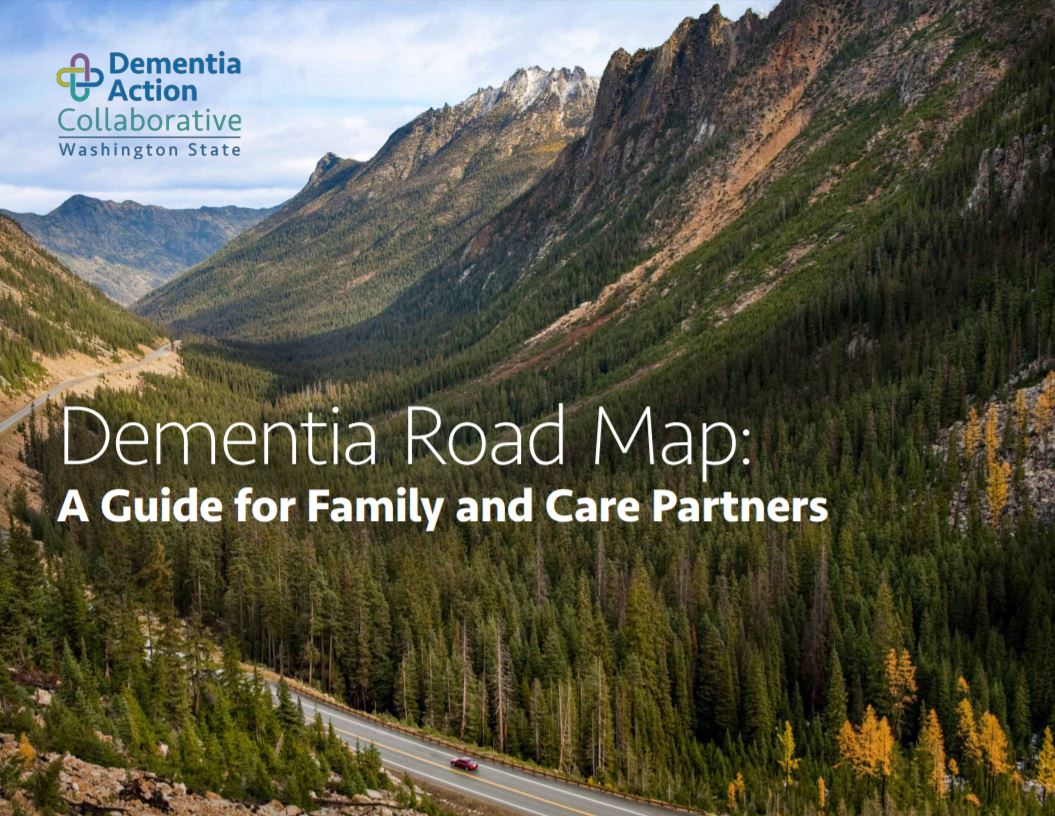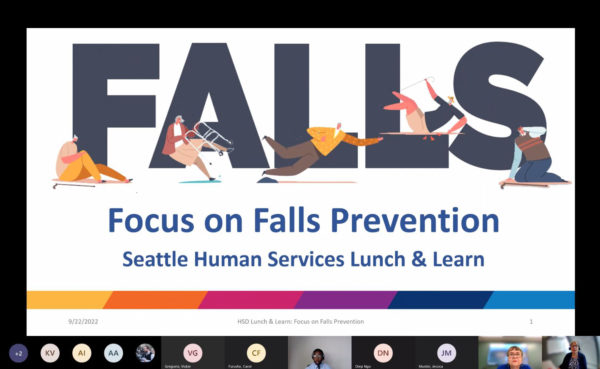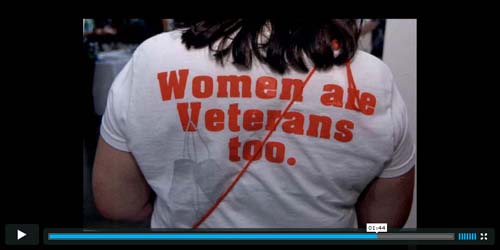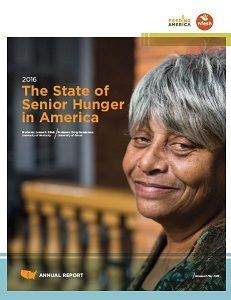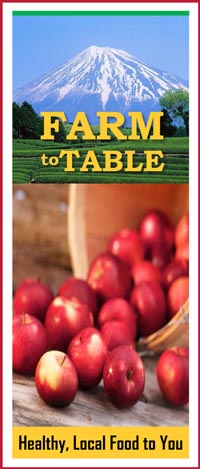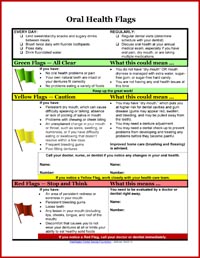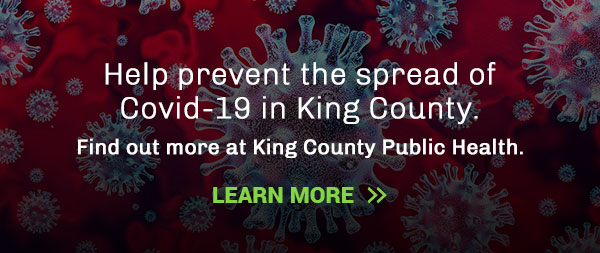Healthy Aging
Brain Health | Falls Prevention | Living Well | PEARLS—Program to Encourage Active Rewarding Lives | Access to Healthy Food | Senior Farmers Market Nutrition Program | Oral Health
Aging and Disability Services (ADS) promotes evidence-based programs in the Seattle-King County area that can keep you moving and help you stay connected.
In addition, ADS promotes access to basic needs like health food and oral health, and additional Healthy Aging programs and services are available in the community. Click on the headings below for more information.
Click on the headings below for more information.
Brain HealthThe following are several ways that Aging and Disability Services supports brain health:
Dementia Action Collaborative
The Dementia Action Collaborative (DAC), established in 2016, is a statewide group of public-private partners committed to preparing Washington state for the growth of people with dementia. The DAC includes a range of appointed members including people with dementia, family caregivers, legislators, representatives of advocacy groups, the Aging Network, Alzheimer’s organizations, long-term care providers, health care professionals, and governmental agencies, including Aging and Disability Services and several other Area Agencies on Aging.
The mission of the DAC is to guide and support the implementation of the Washington State Plan to Address Alzheimer’s Disease and Other Dementias.
An important accomplishment in 2018 was the creation of the Dementia Road Map (available online in English and Spanish). This Washington state-specific “roadmap” was developed to provide family caregivers with information about Alzheimer’s and dementia, and what to expect over time, to help them plan.
The Dementia Action Collaborative also produced a Dementia Legal Planning Toolkit and crafted a call to action about African Americans and Alzheimer’s Disease, including ways that organizations can help.
Memory Care and Wellness Services
Memory Care and Wellness Services (MCWS) is a specialized day program for people with dementia and their caregivers. MCWS provides a safe, social, and therapeutic environment with meaningful services and activities, including a structured, evidence-based fitness program and health assessments by RNs and occupational therapists. Family caregivers receive support and service coordination as they strive to maintain their own health, wellness, and optimal functioning.
Star-C
Star-C is an evidence-based intervention for Alzheimer’s and Dementia care that help caregivers with managing difficult behaviors associated with Alzheimer’s disease. Four one-hour in-home visits and two 15-30-minute phone calls are conducted over six weeks, followed by with four phone calls. The program lowers depression in caregivers and decreases problem behaviors in the person with dementia.
Memory Hub
The Memory Hub is a place for Dementia-Friendly community, collaboration and impact! Bringing together people, programs and partners, the Memory Hub operates as a vibrant Dementia-specific community center, collaborative workspace and training center. Spearheaded by the UW Memory and Brain Wellness Center (MBWC), and located on the campus of founding partner the Frye Art Museum, the Memory Hub welcomes visitors year-round to explore what it means to live well with dementia.
Did you know that one in three older Americans (age 65+) falls every year? Falls are the leading cause of fatal and non-fatal injuries for older Americans and many of these falls are preventable. Aging and Disability Services promotes public awareness about how to prevent and reduce falls among older adults.
Falls Prevention Awareness
On September 22, 2022, the Seattle Human Services Department hosted a lunch & learn that focused on Falls Prevention Awareness. Mary Pat O’Leary, Aging and Disability Services, coordinated and emceed the online event, which featured physical therapist Kele Murdin and pharmacist Diep Ngo.
Following are resources recommended by the presenters:
- Falls Prevention Resources King County
- No Falls at All Home Safety Checklist
- DOH Older Adult Falls
- How to Contact Your State’s Falls Prevention Coalition National Council on Aging
- Falls Prevention for Older Adults
- King County Fall Prevention Coalition
- Evidence-Based Falls Prevention Programs National Council on Aging
- Falls and Falls Prevention National Institutes of Health
- Online training Course for Physical Therapists
- Otago Exercise Program Manual
- Otago Exercise videos
- Postural Hypotension: What it is & How to Manage it
- Stopping Elderly Accidents, Deaths and Injuries (STEADI)
Falls Prevention Awareness Day
Falls Prevention Awareness Day is a national day of recognition that raises awareness about how to prevent fall-related injuries among older adults. For information about ways that you or your organization can get involved, read the National Council on Aging (NCOA) Falls Prevention Awareness Week Impact Reports. The NCOA also provides useful infographics and handouts.
For information about programs available in Seattle-King County, see resources listed below or e-mail ADS planner Mary Pat O’Leary.
Falls Prevention Statistics
- One-quarter of Americans (aged 65+) fall each year.
- Every 15 seconds, an older adult is treated in the emergency room for a fall.
- Every 29 minutes, an older adult dies following a fall.
- Falls are the leading cause of fatal injury and the most common cause of nonfatal trauma-related hospital admissions among older adults.
- Sixty percent of fatal falls occur in the home.
- In Washington state, falls result in over 12,000 hospitalizations each year, compared to 2,600 hospitalizations due to motor vehicle accidents.
- Fifty-four percent of older adults are discharged to skilled nursing homes after hospitalization for falls.
- Only 22 percent of people hospitalized for falls are able to return home.
- The financial toll for older adult falls is expected to increase as the population ages and may reach over $101 billion by 2030.
For more statistics, visit Centers for Disease Control and Prevention.
The Centers for Disease Control’s Guide to Implementing Effective Community-Based Falls Prevention Programs includes tips for planning, partnerships, selection of an evidence-based falls prevention program, and implementing, promoting, and assessing your program.
Falls Prevention Resources
- Fall Prevention Clinic at Harborview UW Medicine
- Falls Prevention Awareness in Public Transportation National Center on Senior Transportation
- Living Well With Chronic Conditions (Chronic Disease Self-Management Program)
- One Step Ahead Fall Prevention Program King County Emergency Medical Services
- A Matter of Balance: Managing Concerns About Falls Sound Generations
- Enhance Fitness Sound Generations
- Enhance Wellness Sound Generations
Tools for Health Care Providers and Human Services Professionals
- Centers for Disease Control Links to facts, data, toolkit for health care providers, and publications
- Fall Prevention Center of Excellence
- National Council on Aging Falls Prevention Tools and Resources
- Stay Active and Independent for Life (SAIL) Training Pierce College
- Washington State DSHS/Aging and Disability Services Administration Falls Prevention
Recent Articles
- How to Prevent Slips, Trips, Stumbles, and Falls AgeWise King County (September 2021)
- Mission Possible: Physical Activity Helps Prevent Falls AgeWise King County (September 2020)
- Eastside Resources for Falls Prevention AgeWise King County (September 2020)
Ongoing conditions like arthritis, diabetes, hypertension, pain, and lung disease often force older adults to give up their independence. Evidence-based programs can help improve health and independence.
Living Well Workshops, developed by the Stanford University School of Medicine support older adults to address ongoing health conditions. The series of six workshops are facilitated by two trained facilitators, one or both who live with chronic conditions. The workshops are offered in person or virtually via computer and a mailed toolkit version is also available.
The classes are highly participative, and participants learn techniques to self-manage problems with chronic conditions, including frustration, fatigue, pain, isolation, and communication skills.
Resources
African American Reach and Teach Health (AARTH): Angeilea Yancey-Watson, Lead Program Coordinator 206 850-2070
Aging and Disability Services: Mary Pat O’Leary 206-684-0683
Kin On Community Health: Michael Woo 206-652-2330 or Faye Chien (focus on Chinese-speaking community)
The Program to Encourage Active Rewarding Lives (PEARLS) is an evidenced-based treatment program for older adults with disabilities who also have minor depression, which is recognized by the Administration on Community Living as meeting the highest criteria. This program is an outgrowth of a five-year research project conducted in collaboration with the University of Washington’s Health Promotion Research Center (HPRC).
- The research study showed PEARLS home-based Depression Management Counseling significantly reduced depression symptoms and improved health status in chronically medically ill older adults with minor depression.
- PEARLS participants are three times more likely than non-participants to significantly reduce or completely eliminate their depression.
- ADS offers no-cost, in-home, PEARLS counseling to adults (aged 55+), including those who served in the military, their spouses, and spouse survivors.
- PEARLS helps people feel better by identifying problems and working toward solutions.
- PEARLS counseling may be provided in addition to other veteran and non-veteran services.
PEARLS Eligibility
- Feeling down, sad, or hopeless more than half the days
- Little interest or pleasure in doing things more than half the days
- Aged 55+
- English speaking
- Veteran, military spouse, or spouse survivor
Not functionally impaired by schizophrenia, schizo-affective disorder, manic depressive disorder, cognitive impairment, or current substance or alcohol abuse.
Materials
Caring for Aging Veterans AgeWise King County (November 2021)
The Program to Encourage Rewarding Active Lives: A Digital Story Paul Snow, Aging and Disability Services (September 2012)

The Program to Encourage Rewarding Active Lives Lori Sanford, Aging and Disability Services (February 2013)
See more information and resources here Help and Information-Veterans.
Contacts
Older adults, adults with disabilities, caregivers, family members and professionals can call us to get objective, confidential information about community resources and service options. For more information about PEARLS, contact Suzet Tave (206-615-0533).
This program received funding from the Veterans, Seniors and Human Services Levy. ![]()
Resources
- Translating PEARLS: lessons learned from providers and participants Frontiers in Public Health (April 27, 2015)
- PEARLS Project Summary
- PEARLS Implementation Toolkit
- PEARLS Website Center for Healthcare Improvement for Addictions, Mental Illness, and Medically Vulnerable Populations
- PEARLS Training Video for Counselors and Other Professionals (January 22, 2010)
- VA Caregiver Support Program US Department of Veterans Affairs. Toll-free support line: 1-855-260-3274
Community Meals | Home Delivered Meals | Farm to Table
Our decades-long commitment to healthy aging includes funding for both community- and home-delivered meals for elders, and programs that combine culturally-appropriate physical fitness and food.
ADS helps meet the dietary needs of adults age 60+ through congregate and in-home meal programs and nutrition education, allowing for better physical and mental health, and greater independence and social contact. In 2017, hundreds of thousands of meals were served to King County residents, including:
- 35,340 individuals who received meals at senior centers or other Congregate Meal sites
- 320 individuals who received emergency meals
- 2,690 individuals who received Home-Delivered meals
Community Meals
Congregate Meal Programs help meet the dietary needs of adults (age 60+) by providing nutritionally sound meals in a group setting. Nutrition education and social and fitness activities are also provided.
- Basic Food/SNAP Washington Connection
- Fresh Bucks City of Seattle Office of Sustainability and Environment
- EBT Matching Washington State Farmers Market Association
- ADS Congregate Meal Sites (2021)
- Pike Market Senior Center Seattle Channel (April 25, 2012)
Home-Delivered Meals
ADS also contracts with community-based organizations to provide Home-Delivered Meals (sometimes called “Meals on Wheels”) for older persons who are unable to leave their homes to shop or prepare nutritious meals. For information about eligibility, contact Community Living Connections at 1-844-348-5464.
Farm to Table (F2T)
Farm to Table (F2T) is a partnership effort to bring fresh local produce to programs serving children and older adults in Seattle and King County. By making healthy food more affordable and easier to access, our goal is to increase the health and well being of our community’s most vulnerable populations by:
- Identifying purchasing options to meet program needs and budgets, including online ordering through the Puget Sound Food Hub, CSA models, and buying direct from farms.
- Building skills and knowledge through community kitchen trainings, farm tours and other educational opportunities.
- Helping communities develop low-cost shared purchasing models for ordering bulk produce to distribute in natural gathering places.
F2T Awards and Recognition
- Childhood Obesity Prevention Award United States Conference of Mayor’s (2015)
- Sustainability Leadership Award Sustainable Seattle (2014)
- Health Champion Award Centers for Disease Control (2012)
F2T Partners
- Seattle Human Services Department
- Northwest Agriculture Business Center
- Public Health Seattle-King County
- Seattle Tilth
- Seattle Children’s Hospital
- Farm to School Program WA State Department of Agriculture
- Senior Nutrition Program Providers There are over 80 pre-school, childcare, and before and after school programs in Seattle and King County.
F2T Resources
- Farm Fresh Food By Season: Seasonality Chart Poster (18×24)
- Farm Fresh Food by Season: Seasonality Chart Hand-Out (8×11)
- Good Food Bag: A community based CSA model where communities and programs purchase in bulk and distribute to members in affordable family or individual sized portions.
- PSFN Presents: Good Food Bag Model NABC and Refugee Immigrant Family Center Good Food Bag Model
- WSDA Farm to Table Training Video WSDA Farm to School Program in Collaboration with Sound Generations
- Puget Sound Food Hub
- Sample Forms and Templates:
- Good Food Bag Toolkit
- Interest Survey
- Staff Agreement
- Parent Agreement
- Liability Release
- Food Safety Tips English and Spanish
F2T Presentations and Reports
- Getting Fresh Local Produce to Kids and Seniors: Exceeding Expectations with the Farm-to-Table Partnership in King County, WA Maria Langlais, Aging and Disability Services (2012)
- Assessing Delivery Models for Childcare and Senior Meal Programs Karen Mauden, Northwest Business Agriculture Center (October 2012)
- Farm to Senior Farm Fresh Rhode Island (November 2014)
F2T Media Coverage
- Cooking up a Farm to Table Storm at Little Tables All Over the City Martha Baskin, Green Acre Radio (June 2016)
- USDA Officials Visit Farm to Table Preschool West Seattle Blog (March 24, 2015)
- F2T Receives Grant Award from US Conference of Mayors (January 2015)
- CDC Awards Health Champion Recognition to Farm to Table AgeWise King County (June 2012).
- NABC/Puget Sound Food Network Blog
- National Recognition of Health Champions Tukwila Reporter (February 23, 2016)
- Farm to Table: Bringing Healthy Food From Local Farms to Local Kids Marth Baskin, Green Acre Radio (April 14, 2011)
- Mapping Our Voices, Farm to Table Digital Stories: A Matter of Taste Emma Brewster, NABC and The Policy of Obesity Onika Shabazz
F2T Funding
Funding is currently provided by the City of Seattle, Public Health Seattle-King County and the HumanLinks Foundation. The CDC provided initial funding for the project through the Communities Putting Prevention to Work (CPPW) and the Community Transformation grants, both of which have enabled project partners to leverage other resources and opportunities.
- Policy, System and Environment Changes Project Evaluation Laurie Ringaert, PHSKC (January 2012)
- CPPW Farm to Table Project Update (March 29, 2012)
- CPPW Public Health King County
Program Eligibility Requirements ǀ How to Apply ǀ Application Forms ǀ Application Tips ǀ Selection Process ǀ SFMNP Program Brochures ǀ Program FAQs – Rights and Responsibilities ǀ Mobile App and QR Codes ǀ ALTSA Nutrition Program ǀ Farmers Markets Locations ǀ Additional Resources
The 2024 SFMNP Application Period is open through May 24
The Senior Farmers Market Nutrition Program provides an e-Benefit card valued at $80 (one-time distribution) to be used for the purchase of fresh fruits and vegetables at participating farmers markets.
Program Eligibility Requirements
To apply, all of the following are required to be true as of June 30, 2024:
- Age 60+ (or age 55+ if you are American Indian or Alaska Native)
Low-Income (making no more than):
- $2,322.00 Monthly Income ($27,864.00 Annually) for one person
- $3,151.00 Monthly income ($37,812.00 Annually) for two people
- For larger households, add $829 for each additional person
Residents in King County Washington, check your Zip-Codes
US Department of Health and Human Services ASPE: Poverty Guidelines FAQ.
How to Apply
Apply Online
- Open the online Senior Farmers Market Nutrition Program Application and chose one of the multiple languages by selecting the link in the upper right corner of the page.
Apply by Mail
- Printable application forms are available (below) in multiple languages during the application period.
- Printed applications must be completed and mailed to the address on the form, postmarked on or before May 24.
- Please do not apply more than once. Duplicate applications will be removed from the application process.
If you need help completing your application, please contact Community Living Connections at 206-962-8467 or (toll-free) 1-844-348-5464.
Application Forms and Program Brochures
| English • English | Application Form | Program Brochure |
| Amharic • አማርኛ | የማመልከቻ ቅጽ | የፕሮግራም ብሮሹር |
| Arabic • عربي | طلب | كتيب البرنامج |
| Cambodian (Khmer) • ខ្មែរ | ទម្រង់ពាក្យសុំ | ខិត្តប័ណ្ណកម្មវិធី |
| Chinese (Simplified) • 简体中文 |
申请表 | 节目手册 |
| Chinese (Traditional) • 中國傳統的 |
申請表 | 節目手冊 |
| Korean • 한국인 | 신청서 | 프로그램 브로셔 |
| Laotian • ຄົນລາວ | ແບບຟອມສະໝັກ | ແຜ່ນພັບໂຄງການ |
| Russian • РУССКИЙ | Форма заявки | Брошюра программы |
| Somali • Soomaali | Foomka Codsiga | Buug-yaraha Barnaamijka |
| Spanish • Español | Formulario de aplicación | Folleto del programa |
| Tagalog • Tagalog | Application Form | Brochure ng Programa |
| Tigrinya • ትግሪኛ | ቅጥዒ መመልከቲ | መደብ ብሮሹር |
| Ukrainian • українська | Заява | Брошура програми |
| Vietnamese • Tiếng Việt | Mẫu đăng ký | Tài liệu chương trình |
Application Tips
The following are tips provided for completing the Senior Farmers Market Nutrition Program application:
- Print information clearly on your form.
- Be sure you meet criteria for eligibility
- Include your apartment number, if applicable.
- The person applying for vouchers, must sign the form in the Participant Signature box.
- Include your full date of birth (month, day, and year).
- Complete all of the boxes
Please note that we are unable to process applications which are incomplete.
Selection Process
- Completed applications received by May 24, will be entered into a random selection process.
- If your name is selected, you will receive an SFMNP card by mail in July.
Program FAQs and Rights and Responsibilities
* 2024 FAQs COMING SOON *
| English • English | FAQ | Rights and Responsibilities |
| Amharic • አማርኛ | FAQ | መብቶች እና ኃላፊነቶች |
| Arabic • عربي | التعليمات | الحقوق والمسؤوليات |
| Cambodian (Khmer) • ខ្មែរ | FAQ | សិទ្ធិ និងទំនួលខុសត្រូវ |
| Chinese (Simplified) • 简体中文 |
常问问题 | 权利和责任 |
| Chinese (Traditional) • 中國傳統的 |
常問問題 | 權利和責任 |
| Korean • 한국인 | 자주하는 질문 | 권리와 책임 |
| Laotian • ຄົນລາວ | FAQ | ສິດ ແລະ ຄວາມຮັບຜິດຊອບ |
| Russian • РУССКИЙ | Часто задаваемые вопросы | Права и обязанности |
| Somali • Soomaali | FAQ | Xuquuqda iyo Waajibaadka |
| Spanish • Español | Preguntas más frecuentes | Derechos y responsabilidades |
| Tagalog • Tagalog | FAQ | Mga Karapatan at Pananagutan |
| Tigrinya • ትግሪኛ | FAQ | መሰላትን ሓላፍነታትን |
| Ukrainian • українська | запитання й відповіді | Права та обов’язки |
| Vietnamese • Tiếng Việt | câu hỏi thường gặp | Quyền và trách nhiệm |
Resources
Senior Farmers Market Mobile App
Install the SFMNP Shopper App on your mobile device, to view your benefit balance, show purchases made, find markets or farms and who to contact when you need help.
QR Codes
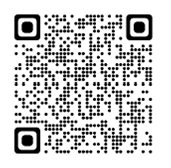 |
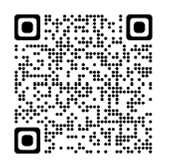 |
|
| Apple – iOS QR Code | Android QR Code |
Washington State DSHS Aging and Long-Term Support Administration Farmers Market Nutrition Program
- Program Overview
- Fruit and Vegetable Brochures (available in multiple languages)
- Nutrition Program Recipes
- Fresh From the Farm Newsletters (available in multiple Languages)
- Program Brochures in Multiple Languages
King County Farmers Market Locations
* 2024 LOCATIONS COMING SOON *
| English • English | Locations |
| Amharic • አማርኛ | ቦታዎች |
| Arabic • عربي | لمواقع |
| Cambodian (Khmer) • ខ្មែរ | ទីតាំង |
| Chinese (Simplified) • 简体中文 |
地点 |
| Chinese (Traditional) • 中國傳統的 |
地點 |
| Korean • 한국인 | 위치 |
| Laotian • ຄົນລາວ | ສະຖານທີ່ |
| Russian • РУССКИЙ | локации |
| Somali • Soomaali | goobaha |
| Spanish • Español | ubicaciones |
| Tagalog • Tagalog | mga lokasyon |
| Tigrinya • ትግሪኛ | ቦታታት |
| Ukrainian • українська | локації |
| Vietnamese • Tiếng Việt | địa điểm |
Additional Resources
- Farmers Market Safe Shopping Flyer English Chinese: 中國傳統的 Russian: УССКИЙ Spanish: Español
- Washington State Farmers Market Association Regional Farmers Markets Directory Please confirm in advance that the markets accept SFMNP cards.
- Transportation Assistance Sound Generations Hyde Shuttle
- Transportation Assistance Catholic Community Services Volunteer Services
- Seattle Fresh Bucks Health Fruits and Vegetables Food Program
How does Washington Stay healthy?
One of the ways is managing our mouths.
For a series of public service announcements about oral health produced by the Washington Dental Service Foundation, visit The Mighty Mouth.
Aging and Disability Services recognizes that oral health is an important factor in overall health and well-being. Healthy People 2030 includes objectives focused on reducing tooth decay and other oral health conditions and helping people get oral health care services.
Oral Health Self-Management Plan
Like flags on a beach that indicate hazardous surf conditions, ADS has created green, yellow, and red oral health flags that indicate health (green), indications of poor health (yellow), and situations that require immediate medical attention (red). Special thanks to the Washington Dental Service Foundation for reviewing this information.
On the back of the Oral Health Flags, you will find a Personal Health Record (PHR) that can help track contact information for your dentist and other health care providers, questions to ask your providers, medications and supplements you take, and other important information.
Patient Handouts
- Oral Health Self-Management Plan: Full Literacy
- Oral Health Self-Management Plan: Low Literacy
- Quick Tips for Better Oral Health
Oral Health Care Cards for Caregivers
The Washington Dental Service Foundation developed Oral Care Cards for Caregivers cards in partnership with the Alzheimer’s Association. These are a great tool for caregivers looking for techniques to make oral care easier.
Finding Affordable Dental Care
We know it’s difficult to access affordable dental care. A good place to start is Dentist Link. In addition, we recommend contacting Community Living Connections to request information about other forms of assistance.
Resources
- Dental Health for Adults Over 60 Mouth Healthy and the American Dental Association
- Division of Oral Health Centers for Disease Control
- Public Resources Washington State Dental Association
For free, confidential access to aging network services in Seattle-King County, contact Community Living Connections.
![Aging & Disability Services for Seattle & King County [logo]](https://www.agingkingcounty.org/wp-content/themes/sads/images/seattle-ads-logo.png)
